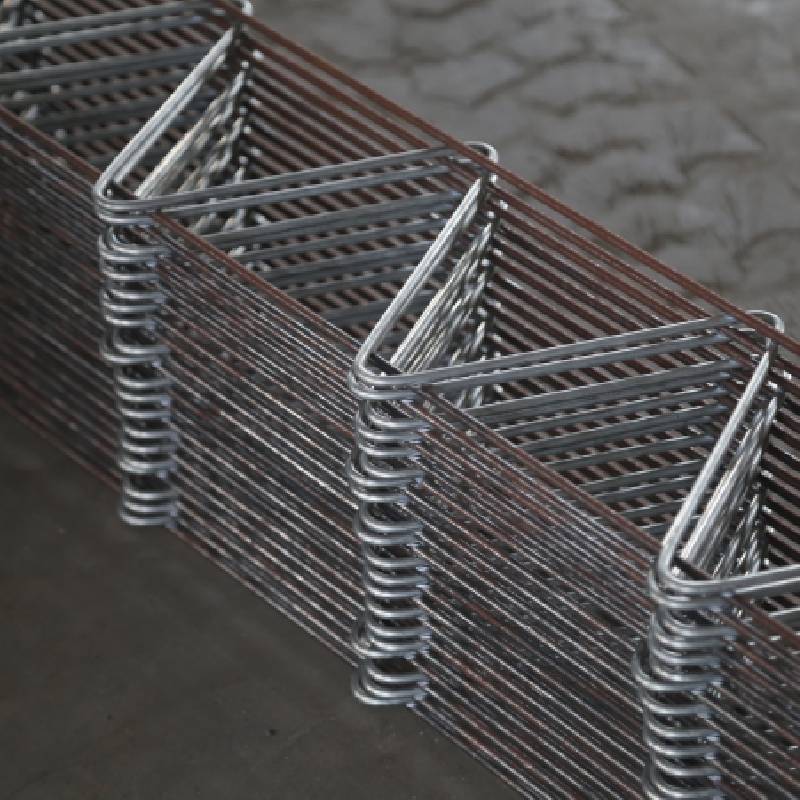
- Mobile Phone
- +8613931874955
- sales@cntcmetal.com
Jul . 10, 2024 20:21
Back to list
Durable metal formwork for long-lasting construction projects
Metal formwork is a popular choice for construction projects due to its durability and efficiency. One type of metal formwork that has gained popularity in recent years is permanent metal formwork.
Permanent metal formwork is a type of formwork that remains in place after the concrete has been poured and set. Unlike traditional formwork, which is typically removed after the concrete has cured, permanent metal formwork is designed to stay in place for the life of the structure. This can provide significant cost savings over time, as there is no need to repeatedly set up and remove formwork for each concrete pour.
One of the key benefits of permanent metal formwork is its durability. Unlike traditional wooden formwork, which can warp, crack, or rot over time, metal formwork is designed to withstand the elements and the weight of the concrete. This means that structures built with permanent metal formwork are less likely to experience issues such as water damage or structural failure.
In addition to its durability, permanent metal formwork can also help to streamline the construction process. Since the formwork remains in place after the concrete has been poured, there is less downtime between pours, allowing for faster overall construction. This can be especially beneficial for large-scale projects or projects with tight deadlines

permanent metal formwork. Another advantage of permanent metal formwork is its versatility. Metal formwork can be custom-designed to fit the specific requirements of a project, allowing for greater flexibility in design. This can be particularly useful for projects that require complex or unusual shapes, as metal formwork can be easily fabricated to meet the unique requirements of the project. Despite its many benefits, permanent metal formwork may not be suitable for every project. In some cases, the initial cost of permanent metal formwork may be higher than that of traditional formwork, which can be a deterrent for some builders. Additionally, permanent metal formwork may not be suitable for projects with changing design requirements, as the formwork is designed to remain in place for the life of the structure. Overall, permanent metal formwork is a durable, efficient, and versatile option for construction projects. While it may not be suitable for every project, it can offer significant benefits for projects where durability, efficiency, and streamlined construction processes are important. As construction technology continues to evolve, permanent metal formwork is likely to remain a popular choice for builders looking to maximize the efficiency and longevity of their structures.

permanent metal formwork. Another advantage of permanent metal formwork is its versatility. Metal formwork can be custom-designed to fit the specific requirements of a project, allowing for greater flexibility in design. This can be particularly useful for projects that require complex or unusual shapes, as metal formwork can be easily fabricated to meet the unique requirements of the project. Despite its many benefits, permanent metal formwork may not be suitable for every project. In some cases, the initial cost of permanent metal formwork may be higher than that of traditional formwork, which can be a deterrent for some builders. Additionally, permanent metal formwork may not be suitable for projects with changing design requirements, as the formwork is designed to remain in place for the life of the structure. Overall, permanent metal formwork is a durable, efficient, and versatile option for construction projects. While it may not be suitable for every project, it can offer significant benefits for projects where durability, efficiency, and streamlined construction processes are important. As construction technology continues to evolve, permanent metal formwork is likely to remain a popular choice for builders looking to maximize the efficiency and longevity of their structures.
share:
Latest news
-
Your Source for Concrete Wall Ties and Masonry AccessoriesNewsJul.10,2025
-
Unlocking the Power of Iron Wire for Every ProjectNewsJul.10,2025
-
Explore Advanced Chain Wire and Stainless Steel Mesh FencingNewsJul.10,2025
-
Discover the Benefits of Annealed Wire ProductsNewsJul.10,2025
-
Discover China Stainless Steel Wire Mesh SolutionsNewsJul.10,2025
-
Build with Confidence Using High-Performance Masonry AccessoriesNewsJul.10,2025
-
Why Sacrificial Formwork Is Redefining Underground ConstructionNewsJun.06,2025



















